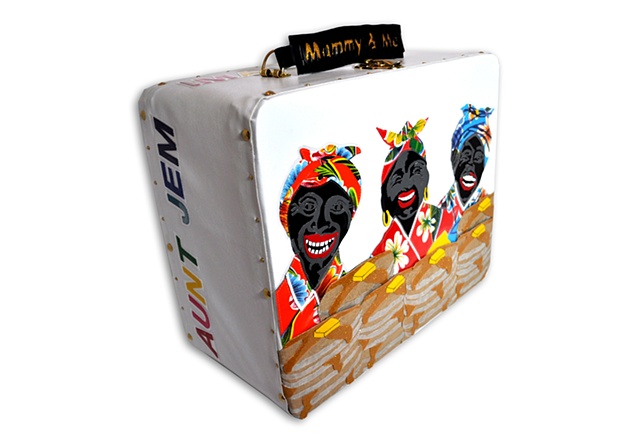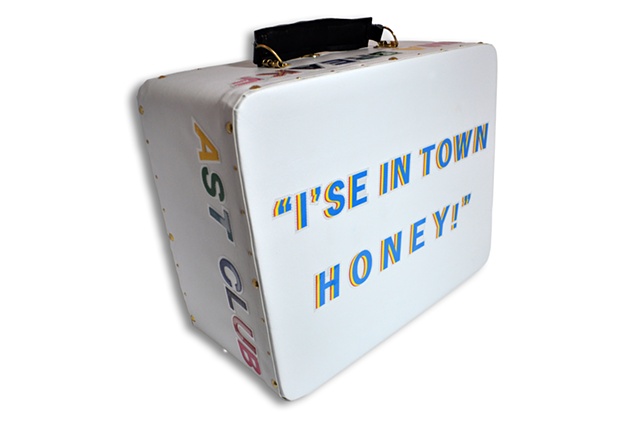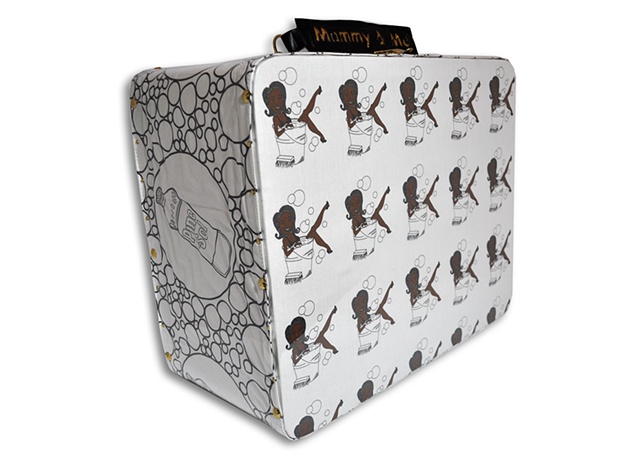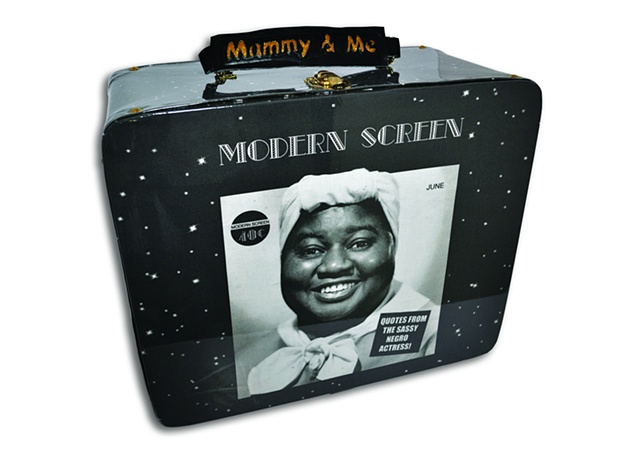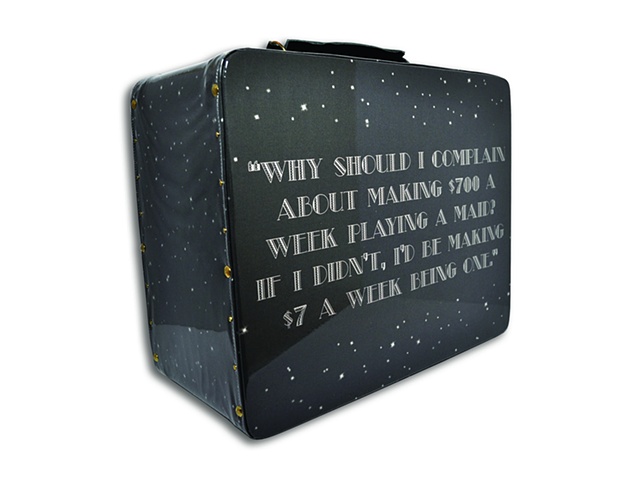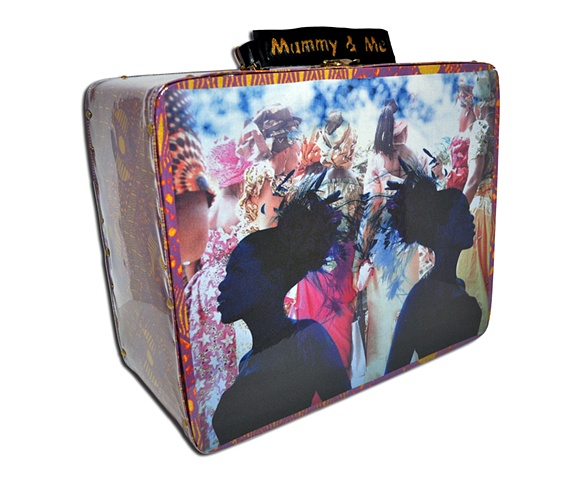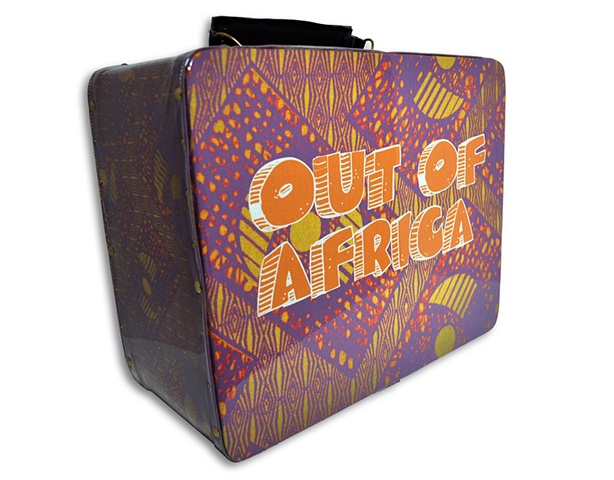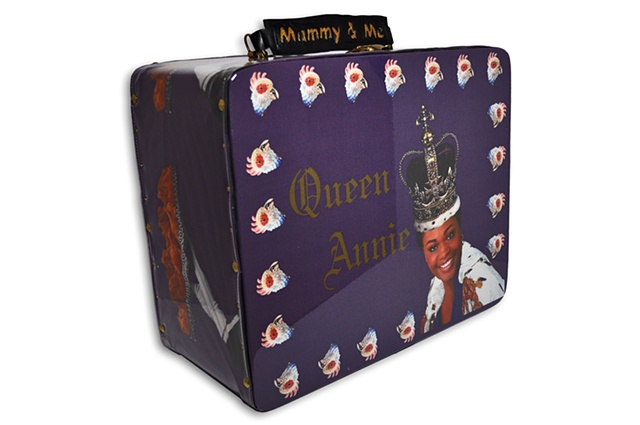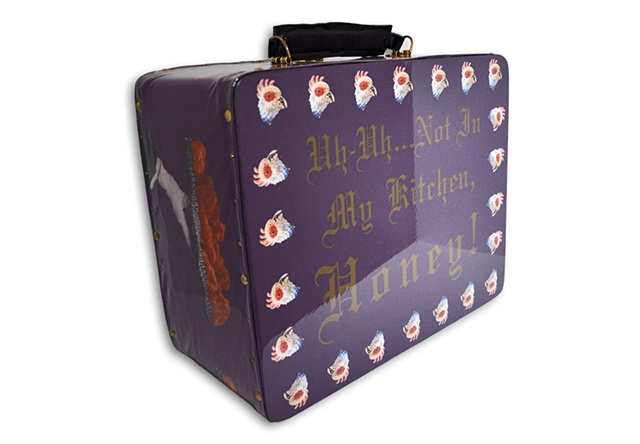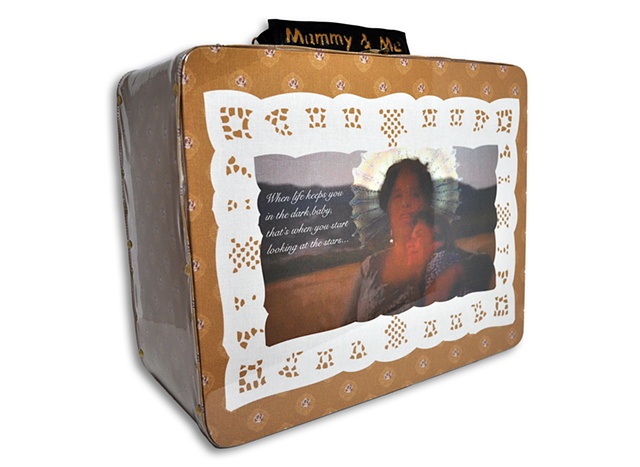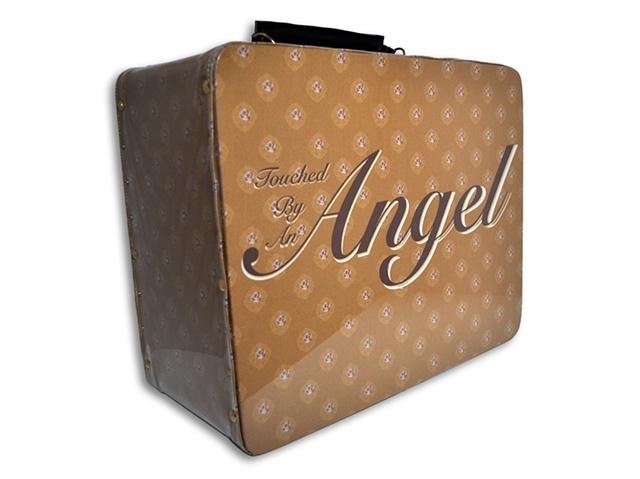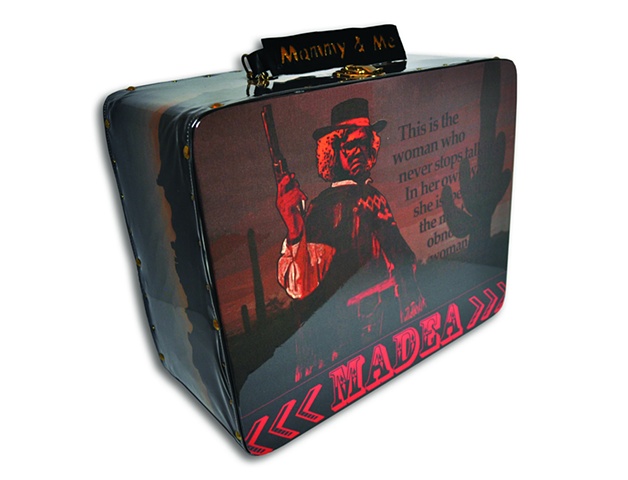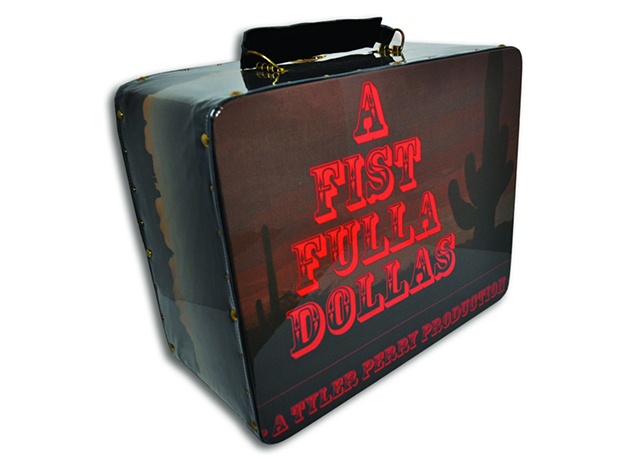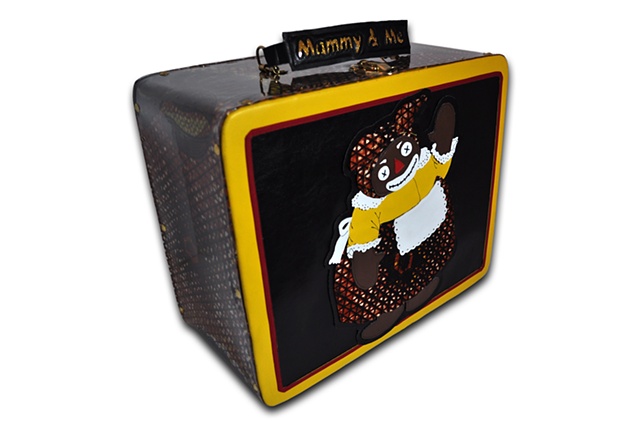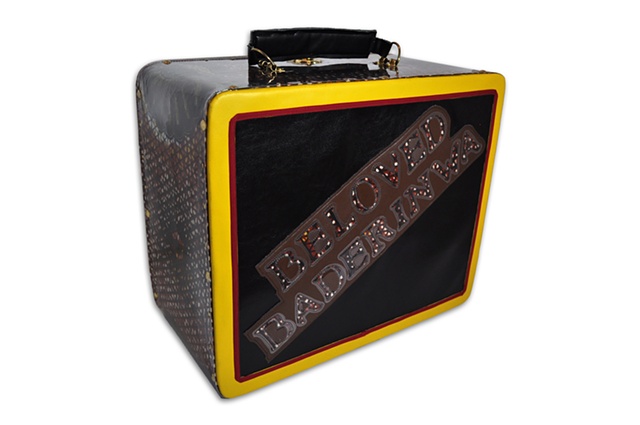Mammy & Me
The Mammy & Me series focuses on the Mammy caricature as a divisive icon in American culture. For White Americans, the Mammy was a symbol of comfort, tough love, and a jolly disposition. For Black Americans, caricatures such as Mammy, Uncle Tom, and Sambo were inflammatory and painful reminders of how White Americans regarded them: at times, lazy and slow, and sometimes loyal to a fault.
The lunchbox forms—covered with bold graphics, text and saturated colors—are a visual reference for nostalgic and collectible items. This series speaks to the self-identity and self-esteem of Black American women, and the effects of stereotypical or sensationalized depictions of Black American women in advertising and entertainment.
Photography by John Jenkins and Laura Waugh
